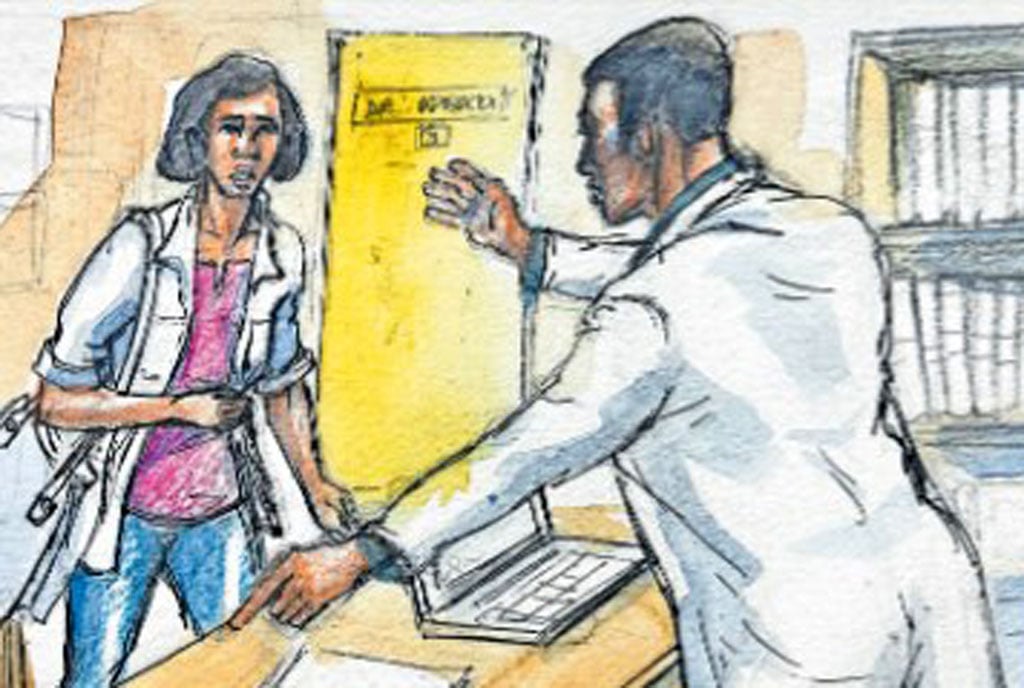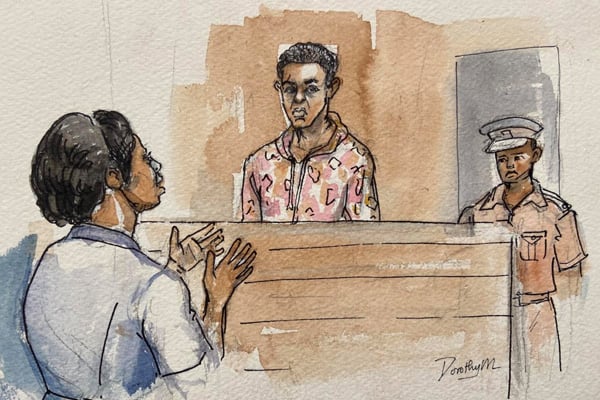
For a case of medical negligence to succeed, the law stipulates that it must be proved on a balance of probabilities that a health care provider owed the complainant a duty of care and that the healthcare provider breached that duty of care.
It must further be proved that the complainant suffered damage or loss as a result of the breach of that duty. Court, after determining these three cardinal issues, then moves to determine if the complainant is entitled to damages and, if so, how much the complainant is entitled to, including the costs of the suit.
Court had to determine if a surgeon breached the duty of care he owed a patient, when the patient suffered adverse effects of a surgery he performed on her anal region. The doctor performed two surgeries on the patient in June 2000 and March 2001 for what were diagnosed as a fistula and a cyst.
During the two surgeries, the patient’s sphincters were injured, resulting in loss of continence to stool and gas, leading her involuntarily time and again, soiling her underwear.
The gist of the case was that the surgeon did not warn the patient of any risk of damage to her sphincters. To the patient had she been warned of this danger she would have asked for a second opinion before undergoing the surgery.
Cases of negligence are determined from the opinion of other doctors about the incidence complained about. It is accepted in law that if a healthcare provider reaches the standard of a responsible body of medical opinion, then that healthcare provider is not negligent. This is known as the Bolam test or Bolam’s law.
In the instant case, the patient provided court with opinions from several doctors. The first independent doctor the patient consulted after the two surgeries examined the patient and noted that there was complete absence of voluntary and reflex external and internal sphincter contraction of the anus. The doctor then referred the patient for specialised management to a hospital in the United Kingdom.
The report of an ultra-sound scan performed in London noted that there was almost complete fragmentation of the internal sphincter and extensive disruption of the external sphincter, which injuries were consistent with damage following stretching of the anal muscles more than likely following manual anal dilatation.
A specialist doctor in London also wrote a report and stated that the patient had some sphincter damage following surgery for fistula due to sepsis. The doctor, in his report, noted that when he examined the patient he observed that the patient had clear evidence of previous surgery.
A professor of surgery reviewed the patient in 2006 and also wrote an opinion on the patient’s condition. The professor observed that before the two surgeries the patient’s bowel control was normal but after the operations she developed incontinence to wind and soft stool.
On examination, he observed that there was a complete deficiency of the anal sphincter in the anterior aspect and this was a consequence of the surgery on the fistula. The professor also noted a marked decline in the patient’s bowel control and observed that once a week she was prone to having a bowel accident which was quite large.
In addition, she had considerable problems with passive soiling and she had also had multiple urinary tract infections. An anal examination showed a poor contraction in the residual external anal sphincter.
The law states that if a person holds himself out as possessing a special skill and knowledge (such as a healthcare provider) and is consulted then that person owes a duty to the patient to use due caution in undertaking the treatment. The law requires a fair and reasonable standard of care and competence.
A healthcare provider’s relationship with a patient gives rise to the normal duty (of care) to exercise his skill and judgment to improve the patient’s health in any particular respect in which the patient has consulted him.
The duty of care is to be treated as a single comprehensive duty; it covers all the ways in which the doctor is called upon to exercise his skill and judgment in the improvement of the patient’s physical and mental condition.
A doctor can only be held guilty of medical negligence when he falls short of the standard of reasonable medical care and not because in a matter of opinion, he made an error of judgment. For negligence to arise, there must have been a breach of duty and the breach of duty must have been the direct or proximate cause of the loss, injury or damage.
DBy proximate is meant a cause which is a natural and continuous chain, unbroken by any intervening event. The direct or proximate cause is that which must have produced the injury and without which the injury would not have occurred. The breach of duty is one equal to the level of a reasonable and competent health worker.
The standard of care which the law requires is not an insurance against accidental slips. It is such a degree of care as a normally skillful member of the profession may reasonably be expected to exercise in the actual circumstances of the case. A surgeon is expected to have regard to the different kinds of circumstance that may require his or her urgent attention.
A charge of professional negligence against a healthcare provider is a serious matter. It stands on a different footing to a charge of negligence against the driver of a motor car; the consequences are far more serious. It affects the healthcare provider’s professional status and reputation. The burden of proof is correspondingly greater.
In cases of medical negligence, courts should be careful not to construe everything that goes wrong in the course of medical treatment as amounting to negligence. The courts would be doing a disservice to the community, if they were to impose liability on hospitals and healthcare providers for everything that goes wrong.
In the course of treatment some discretion must be left to the judgment of the healthcare provider on the spot so that he or she uses his or her common sense, experience and judgment as far as it suits to the situation of the case.
One cannot be solely guided by what has been written in the text books because statements in the text books are more of generalizations and cannot substitute for the judgment of the surgeon who handles the situation on the spot.







